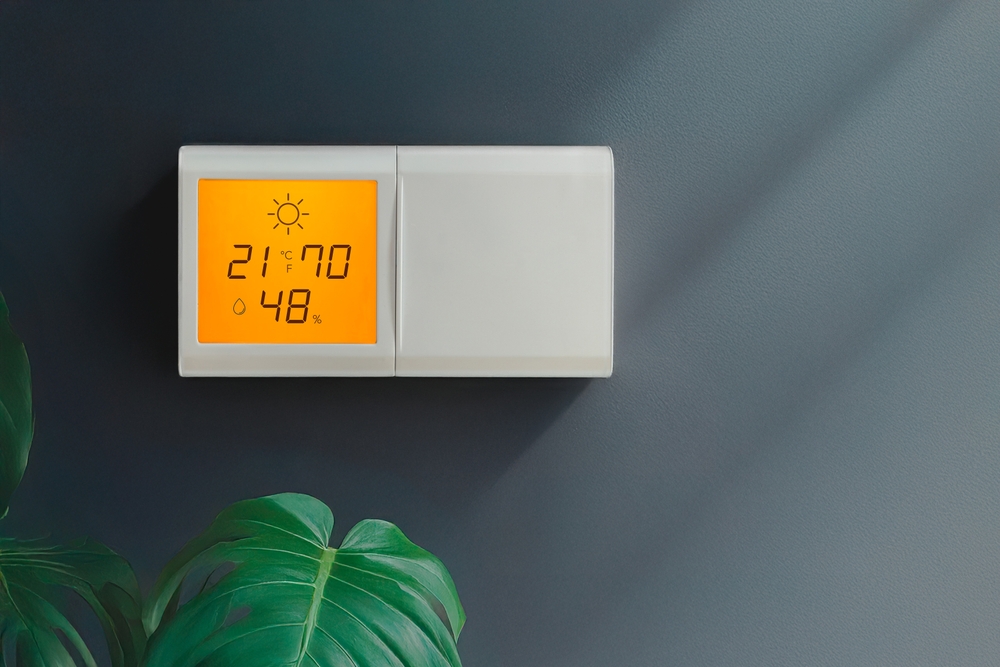Along with ironing, laundry is considered one of the most tedious household chores, as it takes up so much time that it sometimes seems endless. One common question homeowners ask is: can you wash sheets and towels together? In an effort to save time, energy, and money, many people toss them into the same load — thinking it’s an efficient shortcut.
However, while washing towels with sheets might seem like a smart idea, it often leads to undesirable results. As the cleaning experts at Yorleny’s Cleaning Services will explain below, the coarse texture of towels and the lint they release can actually damage your sheets over time. Read on to find out the best way to wash sheets and towels without compromising cleanliness or fabric quality.
Although it may seem like a brilliant idea for saving water, detergent, and energy, washing towels with sheets in the same cycle doesn’t always produce good results. In fact, as the cleaning experts at Yorleny’s Cleaning Services explain, the coarse texture of towels and the lint they release during washing could ruin your sheets. Read on to learn what professionals recommend when deciding if can you wash sheets and towels together.
Is It Safe to Wash Sheets and Towels Together?
So, can towels and sheets be washed together safely? While it is technically possible, it is not always recommended. Laundry experts advise that you wash sheets and towels separately to preserve the quality of both.
Towels are heavier and often take longer to dry, while sheets are more delicate and lightweight. Washing towels with sheets in one load may cause uneven cleaning, longer drying cycles, and even fabric damage — which ultimately defeats the purpose of trying to save time or energy..
Key Differences Between Sheets and Towels
Sheets and towels differ in material, absorbency, and care needs — all of which impact how they should be washed. Towels are designed to absorb moisture and are typically made of thick, looped cotton that sheds lint. In contrast, sheets are made of smoother, thinner materials that can easily trap that lint.
Because of these differences, the best way to wash sheets and towels is to treat them separately. Using the wrong settings or combining them too often may shorten their lifespan or result in lackluster cleanliness.
Risks of Washing Them Together
Can you wash sheets and towels together? One of the biggest risks when deciding whether you can wash towels and sheets together is lint transfer. Towels tend to shed, especially when new, and that lint can cling to sheets, making them look older or dingy.
Towels also absorb much more water, which can overload your machine and reduce washing efficiency. This may leave your sheets less clean than expected. Additionally, towels often carry more bacteria and dead skin cells.
If you are still wondering Can you wash sheets and towels together, Washing them with bedding increases the chances of germ transfer — especially concerning if you or someone in your household has allergies or sensitive skin.
Best Practices for Washing Sheets and Towels Separately
Ultimately, the best way to wash sheets and towels is in separate loads, using customized cycles suited to each fabric type. Use warm water and a gentle cycle for sheets, and opt for hot water with a heavy-duty cycle for towels when possible. This approach ensures everything gets fully clean, lint stays under control, and both items maintain their softness and longevity.
Ideal Water Temperature and Detergents
Here are some tips for washing sheets and towels separately to help preserve them in the best possible condition for a longer period:
- Separate Loads: Wash sheets and towels in separate loads, using the appropriate water temperature and detergent for each type of fabric. Can you wash sheets and towels together? Technically yes, but separating them yields better long-term results.
- Hot Water for Towels: Use hot water for towels to ensure thorough cleaning and sanitization, especially if they are heavily soiled.
- Hot or Warm Water for Sheets: Sheets can be washed in either hot or warm water, depending on the fabric and care instructions.
- Avoid Overloading: Do not overload the washing machine, as this can lead to uneven cleaning and potential damage to the fabrics.
- Consider Drying: If you choose to wash sheets and towels together, dry the sheets first, as they tend to dry faster. Then, add the towels to the dryer — another reason why people ask, can you wash sheets and towels together without issues?
- Detergent Choice: Use the recommended amount of laundry detergent for each load. Consider using a detergent specifically designed for towels to help maintain their absorbency.
- Fabric Softener: Avoid using fabric softener on towels, as it can reduce their absorbency.
How to Prevent Bacteria, Odors, and Damage
To prevent bacteria, odors, and damage to towels and sheets, follow these cleaning and storage guidelines:
Washing:
- Hot Water: Wash towels and sheets at high temperatures (60°C or higher) to eliminate bacteria and odors. If hot water isn’t an option, use a detergent with oxygen-based bleaching agents or a textile disinfectant.
- Detergent: Use a high-quality detergent with antibacterial properties, avoiding excess to prevent residue buildup.
- Wash Cycle: Select a cycle that includes soaking and an extra rinse to ensure all detergent is removed.
- Avoid Fabric Softener: Fabric softener can reduce absorbency and promote moisture buildup.
- Disinfectant: For towels with strong odors, add a fabric disinfectant to the wash.
>If you’re still wondering can you wash sheets and towels together and keep things hygienic, the answer depends on water temperature, detergent strength, and how you handle post-wash drying.
Drying:
- Immediate Drying: Dry towels and sheets right after washing to prevent moisture and odors.
- Air Drying: If possible, dry items outdoors in the sun for natural disinfection.
- Tumble Drying: Ensure items are completely dry before storing them.
Storage:
- Ventilation: Store towels and sheets in a dry, well-ventilated area to avoid moisture and odors.
- Avoid Closed Spaces: Do not store items in unventilated closets, which can promote bacterial growth.
- Dehumidifier: In humid areas, use a dehumidifier to keep conditions dry.
Additional Tips:
- Use White Vinegar: A splash of white vinegar in the wash can help eliminate odors.
- Wash Regularly: Wash towels weekly to prevent bacteria and odors.
How Often Should You Wash Towels and Sheets?
Hygiene Guidelines for Households
Even if they look clean, towels provide the perfect environment for bacteria to thrive. Their constant exposure to moisture and warmth in bathrooms creates ideal conditions for microorganisms to accumulate and multiply quickly.
The same goes for bed sheets, which come into contact with sweat, dead skin cells, and body oils night after night. Maintaining a consistent washing routine is key to reducing bacteria buildup and ensuring your fabrics stay fresh and hygienic.
Many people ask, can you wash sheets and towels together to save time? While it’s possible in some cases, keeping them on different schedules based on hygiene needs is usually the better choice.
Frequency Recommendations for Short-Term Rentals in Florida
Here’s a general guideline for how often towels should be washed:
- Bath towels: Every 3 to 4 days
- Hand towels: Every other day
- Face towels: Ideally, after each use
As for sheets, washing them at least once a week is recommended for regular use, or more frequently in hot and humid climates like Florida. And again, while you might wonder can you wash sheets and towels together to save time, experts still recommend washing them separately for the best cleaning results.
Should You Pre-Wash New Towels and Sheets?
Yes, it is highly recommended to wash new towels and bedding before their first use. Pre-washing helps eliminate manufacturing chemicals, excess dyes, and loose lint, while also softening the fabric and improving absorbency.
If you’re wondering can you wash sheets and towels together right out of the package, it’s best not to. Pre-wash them in separate loads to prevent lint transfer from towels and to avoid cross-contamination of dyes or finishes.
Chemicals, Absorbency, and Color Protection
Whether or not can you wash sheets and towels together depends on your detergent and cycle choice, but either way, opt for mild, fragrance-free detergents to maintain fabric integrity. For a more natural approach, consider using baking soda or white vinegar, which can boost cleaning power while preserving softness and color vibrancy.
Tips for the First Wash
Separate by Color: To prevent color bleeding, wash whites and colored items separately, especially during the first wash.
Separate by Fabric Type: Towels, due to their thickness and lint production, should ideally be washed alone. So even if you’re tempted to try it, the answer to can you wash sheets and towels together — at least during the first wash — is no.
Don’t Overload the Washer: Overloading prevents proper agitation and rinsing, leading to ineffective cleaning and possible fabric damage.
Clean Your Washing Machine Regularly: Detergent buildup and fabric residue can linger in your washer. Cleaning it regularly will help maintain absorbency and hygiene for both towels and sheets in future loads.
Eco-Friendly Tips for Laundry Routines
If you’re asking yourself can you wash sheets and towels together to save energy and water, the answer is: only sometimes. While it may seem efficient, doing so too often can reduce the lifespan of your fabrics and increase energy use due to uneven drying times. A smarter approach involves intentional load planning — as explained below.
Save Energy and Water with Smart Laundry Loads
Tips for a Greener Laundry Routine:
- Wash Less Frequently: Consider whether items truly need to be washed after every use. Towels and sheets, for example, don’t require daily laundering unless used in high-turnover settings.
- Wash in Cold Water: Cold water cycles drastically reduce energy consumption since heating water is one of the biggest energy drains in laundry.
- Wash Full Loads: Always run full loads when possible. Wondering can you wash sheets and towels together to maximize load size? Occasionally yes — but only if they’re similarly soiled and compatible by fabric type.
- Air Dry When Possible: Line drying or using drying racks minimizes energy usage and extends fabric life, especially for lighter sheets.
By applying these tips, you can create a more sustainable laundry routine without compromising fabric care — especially when asking “can you wash sheets and towels together“ and looking for the most efficient and eco-friendly methods.
Natural Cleaning Products You Can Use
When choosing laundry detergents, go for biodegradable formulas in eco-friendly packaging like compostable pouches, refillable jugs, or laundry strips. These options help reduce plastic waste and chemical pollution.
You might also rethink your fabric care habits. For example, when considering can you wash sheets and towels together with eco-friendly detergents, be sure the product is gentle enough for sheets and strong enough for towels. Look for plant-based cleaners with stain-fighting ingredients such as baking soda or enzymes.
- Dryer Balls: Use wool or silicone dryer balls to speed up drying time, reduce wrinkles, and eliminate the need for chemical-laden dryer sheets.
- Skip Fabric Softeners: Most are unnecessary and can leave a residue that reduces towel absorbency. Natural alternatives like white vinegar work just as well without the environmental cost.
Florida-Specific Considerations for Laundry
Florida’s climate and regulations require special considerations for everyday laundry practices — especially when deciding can you wash sheets and towels together in such a humid environment. Beyond typical household concerns, Floridians should also consider energy efficiency, the effects of local humidity on drying, potential sales tax consequences, and the possibility of employing clotheslines. In addition, specific regulations govern laundry facilities in residential communities and public areas to ensure proper sanitation and maintenance.
How Humidity Affects Drying Time and Freshness
High humidity significantly slows down laundry drying time because the air is already saturated with moisture, making it harder for water to evaporate from clothes. This prolonged dampness can cause mildew, musty odors, and potential fabric damage — especially if sheets and towels are washed together and not dried promptly.
It’s no surprise that many Florida residents ask, “Can you wash sheets and towels together?” While it may seem convenient, in Florida’s climate, where humidity is a constant concern, doing so could worsen the issue by increasing overall drying time and the risk of mildew. To maintain freshness and fabric longevity, it’s often best to wash and dry these items separately whenever possible.
Final Verdict: Should You Wash Towels and Sheets Together?
When it comes to laundry efficiency, many people ask: can you wash sheets and towels together? The short answer is — occasionally, but it’s not ideal for regular practice. While it may save time and energy in the short term, doing so frequently can lead to fabric damage, reduced absorbency, and hygiene concerns.
Best Practice: Keep Them Separate for Longevity
For optimal cleanliness, fabric preservation, and hygiene, washing towels and sheets in separate loads remains the recommendation of professional cleaners. Towels are heavier, absorb more water, and shed lint, while sheets are lighter and more delicate — meaning they benefit from different wash settings and care.
Still wondering “can you wash sheets and towels together” in a way that works for your household or rental property? Let the experts guide you. At Yorleny’s Cleaning Service, we not only provide sparkling clean homes — we offer tips and expert care to keep your linens looking their best.
Contact us today to learn more about our home cleaning services or schedule your next professional deep clean.
Recent Articles

Super Bowl Cleaning Checklist: How to Prepare and Clean Your Home Before and After the Game
Super Bowl LX is almost here, and families in West Palm Beach are preparing to welcome friends and family for the biggest…

How to Check Humidity in Your Home: Simple Methods for Florida Households
Have you ever wondered how to check humidity in home? The truth is, nobody likes living in a damp house, especially in…

Superbowl After Party Cleaning: How to Clean Your Home Before and After the Big Game this 2026
The Super Bowl is just around the corner, and Superbowl after party cleaning becomes essential when hosting a viewing party at home.…
An overview of the areas we serve
See below to check if our top-quality house cleaning services are available in your city and book your first appointment with just a few clicks.
